This post was originally published on December 31, 2018 and has been updated for 2020.
Time to read: 6 mins
Feeling overwhelmed by the number of music streaming apps available? You're not alone. While many of the streaming music services may seem identical to the others at the outset, there are many subtle differences which we'll explain in this post. Don't spend your money just anywhere, read through this post to find the pros and cons of each.
How We Decided On The Top Music Streaming Services:
We looked at a number of factors when compiling this list of the top music streaming apps, including audio quality, library size, usability, user interface, design, geo availability, price, artist payouts, devices and platforms app is available on (iPhone, Android, Xbox, Web, etc.), and much more. We also examined things that we didn't like, such as Soundcloud's limited ability to create bands (requiring all band members to use the same account).
Below are the top 9 best music streaming apps of 2020, along with a few runner-ups.
1. Spotify
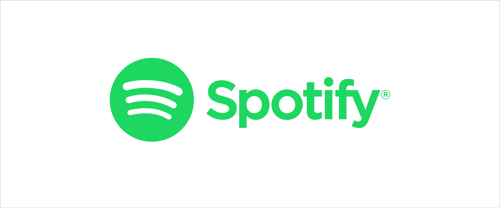
Price: Free, $9.99 for individuals, $14.99 for families.
Spotify launched in Sweden in 2008 and is the current king of streaming music, with 36% of the market (over 108 million subscribers worldwide). Spotify did an unconventional IPO in 2018 and, at the time of this writing, is down considerably from their all time high of $198.99. Despite their stock market woes, they're the number one streaming music app with the most paying subscribers of any other service, and they're our top choice for the majority of people who are looking for a streaming music service.
Pros:
- 35+ million tracks
- Free version (with ads and limited mobile functionality)
- Easy to use interface and great library/playlist features
- Great for music discovery (Discover Weekly learns your listening preferences overtime and delivers you a custom built playlist weekly)
- Offline Listening for Premium subscribers
- Available on countless devices including web, iPhone, Android, Xbox, Playstation, Smart TV's, and many more.
- Bundle subscription with Hulu (may or may not be available indefinitely).
Cons
- Not super easy to share music
- Free version doesn't let you play music on demand on mobile (and let's be honest; this is where we listen to the majority of our music).
- Often criticized for low payouts to artists, although this is debated due to the large cut that record labels take before the artist gets paid.
- Ads in free version are very intrusive and annoying. Spotifys entire business model revolves around annoying people with ads to the point where they'll upgrade to a premium version.
2. Soundcloud
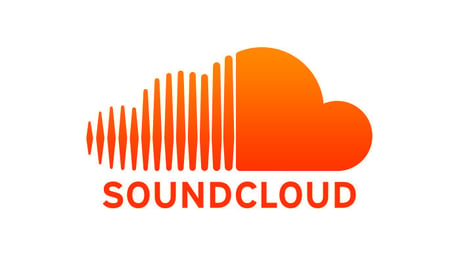
Price: Free, $4.99 for SoundCloud Go, $9.99 for SoundCloud Go+
Soundcloud is the Youtube of audio, letting anybody upload music, podcasts, and more to their service. Soundcloud is great for indie artists or any musicians that are trying to get their music out there to begin building their fanbase. SoundCloud offers a number of tools and features for artists to expand their following.
Pros:
- Extremely easy to share music (just grab a link and share it wherever).
- Free to listen to music and free to upload songs up to a limit.
- Over 175 million monthly active users means there's always new music being added, just waiting to be discovered.
- Easy to upload music.
- Robust analytics can help artists learn more about their audience, where they are, and what they like and don't like.
Cons
- Mobile app is lacking in functionality.
- Limited to only 3 hours of song time in the free version.
- Having financial difficulties, remains to be seen if Soundcloud will survive in the long term.
3. Apple Music
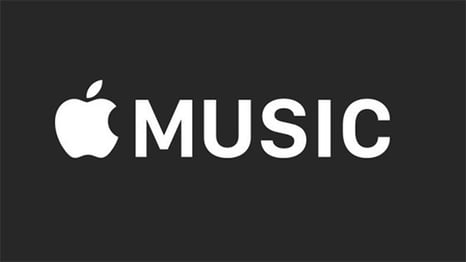
Price: Free trial, $9.99 for individuals, $14.99 for families.
Right behind Spotify in terms of the number of paid streaming subscribers, Apple Music was created in 2015 from Apple's acquisition of Beats music. Currently, Apple Music has over 50 million paid subscribers, and is expecting to overtake Spotify.
Pros:
- Integrated into Apples ecosystem; if you have an iPhone and an Apple account, you're only one click away from getting access to all Apple Music has to offer. In addition, Apple also has a standalone Apple Music app for Android.
- 45+ million tracks for download
- Beats 1 Radio station is an exclusive, 24/7 human curated radio station featuring high quality programming.
- 3 month free trial is one of the longer trials available from streaming music apps
- Higher payouts to artists than other streaming services
Cons
- No free version
- Barely any differentiation between Spotify
- Unintuitive and confusing user interface
- Weak music discovery options
- No web player interface
4. Amazon Music (Prime & Unlimited)

Price: Free trial, Prime music is free for prime members ($120/yr), Amazon Music Unlimited is $7.99 for Individuals
Amazon actually has two different streaming music services (both will be mentioned in the pros and cons below). Amazon Prime Music and Amazon Music Unlimited have two million tracks and 10+ million tracks, respectively. Amazon Prime music is included with Amazon's Prime $120/yr membership, while Amazon Music unlimited is a $7.99/mo membership option which is separate from Prime.
Pros:
- Prime Music and Music Unlimited are both integrated with Amazon Echo, Amazon's smart speaker device. Simply ask Alexa to play your desired song and if it's in the library, it'll begin playing immediately.
- Both versions are ad-free
- Offline Music listening, great for plane trips or anytime you don't have access to an internet connection
- Easy to use web player
- Fully integrated with your Amazon account making it easy to pay
- Lower cost than Spotify and Apple Music ($7.99 for Music Unlimited or $3.99 for Echo only streaming)
- Scrolling lyrics
Cons
- No free version, you must either be an Amazon Music Unlimited or Prime member to access music.
- More limited song library than other streaming services like Apple Music and Spotify
- Limited music discovery options
- Both services are geared largely towards prime members, if you're not an existing prime member taking advantage of shipping and video, getting Prime or Music Unlimited just for music is a tough sell.
5. Pandora
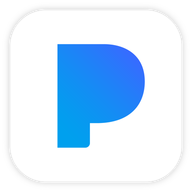
Price: Free, $4.99 for Pandora Plus, $9.99 for Pandora Premium, $14.99 for Pandora Premium Family.
Pandora is one of the first music streaming apps, and is the company that continues the music genome project. Pandora's music discovery options are unparalleled, and has several options to allow you to discover and stream unlimited music on demand.
Pros:
- Free, ad supported version with limited skips
- Continuously learns your music preferences based on songs that you thumbs up, thumbs down, skip, or listen to the whole way through.
- Possibly the best app for new music discovery due to the music genome project categorizing songs by their fundamental essence, meaning you're more likely to enjoy similar songs.
Cons
- Free version does not you pick which songs you want to listen to, you can only choose stations
- Ads in the free version are 30 seconds long and extremely annoying, seem to appear every other song play.
- Free version has a limited song library
- Multiple plans are confusing (Pandora Free, Pandora Plus, Pandora Premium all offer different levels of service and limitations)
- No user created playlists
- Difficult for artists to get music on Pandora, not indie friendly
6. Tidal
Price: Free trial, $9.99 for Premium (individuals, $14.99 for Family Premium, $19.99 for HiFi, additional options for students, military, first responders.
Jay-Z purchased Tidal in 2015 and Tidal has quickly positioned itself as the artist friendly music streaming service, as well as the streaming music service for Audiophiles. This is the only service that offers lossless audio streaming with sound quality equal to, or better than, CD. Tidal has also featured exclusives from artists such as Beyonce and Kanye West.
Pros:
- Highest quality audio for Audiophiles (although if you're not using great quality speakers or headphones, the audio quality will be lost on you).
- Sometimes has early releases or exclusives of popular artists
- Good web player user interface
- Pays artist 2/3 more than Apple Music and 3x as much as Spotify
- A good amount of video content, concert livestreams, etc.
Cons
- More expensive than other offerings ($20 for Tidal HiFi)
- Smaller music catalog than the alternatives
- No free version (although they do have a 30 day free trial and occasional, low-cost promotions for new subscribers)
- Criticized for late payouts to artists
7. YouTube Music

Price: Free trial, $9.99 for individuals, $14.99 for families.
First it was Google Music. Then it was YouTube Red. There's also Google Play Music which is a separate service. Now Google Play Music is going away (sometime) and everything will become YouTube Music. If you're confused about Google's Music offering, you're not the only one. In its current form, YouTube Music is Google's answer to Apple Music and Spotify. As one of the biggest, and most criticized, platforms for music, YouTube has several pros and cons, highlighted below.
For Clarity: YouTube Premium includes ad-free access to both YouTube Music and YouTube. Google Play Music Unlimited is a separate service that allows you to listen to 40+ million songs (paid, on demand) and upload your own music library to be listened to anywhere (free). YouTube Music is the newest version of the service that costs $9.99 and allows you ad-free access to all music on YouTube.
Pros:
- Youtube has the highest number of songs and users, by far, including live performances and just about any type of audio you can imagine
- Extremely powerful recommendation engine, since it's integrated with your overall Google account and knows your interests and listening habits
- Easy to upload music.
Cons
- Confusing between all of the changes with naming and what's included
- UI isn't as intuitive or user friendly as some alternatives
- Historically, Youtube has provided the lowest payouts to artists. Hopefully this changes in 2020 now that YouTube music is available and more people are taking advantage of the premium tier rather than listening for free with ads.
- The free tier has an overwhelming number of ads, seeming to play almost before every single song/video.
- You need to pay to "listen in the background" on your phone; this is a feature that EVERY other music streaming app offers for free.
8. Deezer
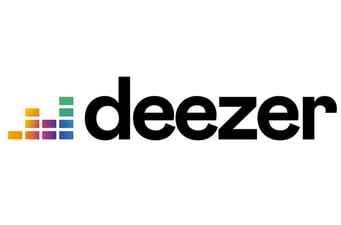
Price: Free trial, $9.99 for individuals, $14.99 for families.
Deezer currently has around 8.5 million subscribers and 56 million tracks available, and growing. Deezer was originally started in France and has only been available in the U.S for a couple of years, but has been growing consistently during this time.
Pros:
- Large library of songs (56 million +)
- Good live radio features
- Wide availability (available in 182 countries)
- High quality sound
- Offline Music uploads
Cons
- Poor music discovery options
- No offline mode in desktop app
- No free mobile version
- Low library limit
9. Fignotes

Price: Free forever
The Fignotes app is currently in development, and a limited beta is expected to be released in 2020. Based out of Boston, Massachusetts, Fignotes is the newest app on this list and the only dynamic music streaming app. Fignotes also offers other differentiators which you can learn about below.
Pros:
- World's first dynamic music streaming app
- FREE! Fignotes will make money by selling non-obtrusive ads.
- Flexibility: Fignotes is built from the ground up to be flexible and to empower artists to engage with fans in ways that were never before possible.
- No limits to library sizes, uploads, or listening time.
- Artist collaboration features (allows artists to form bands and create curated setlists for their followers).
- Easy to use interface
Cons
- Unreleased: Fignotes is pre-beta and is aiming for a 2020 release.
- No offline streaming (at start... we will eventually offer this).
- Small music catalog at launch... but will grow as time goes on.
Runner ups: Slacker, Napster, Qoboz.
CONCLUSION:
There are plenty of options to stream all different types of music, each with their various pros and cons. With 2020 shaping up to be a record breaking year for streaming music, it has never been a better time to signup for a service to begin discovering new music. Yet with all of these different streaming music apps, most offer very similar features to one another with very little differentiation. Fignotes is a new dynamic music streaming application that is built from the ground up to allow artists to express their creativity in new and unique ways that has never been possible before digital music existed.
Fignotes allows dynamic insertion of solo and derivative song versions that creates a seamless experience for the artists fans, and provides robust listener analytics to artists, something that no other streaming music service can offer. The app provides tons of flexibility for artists to form bands and collaborate with other artists, as well as the ability to engage with fans and promote their merchandise, tours, and much more. We live in an age of constant changes, why should our music remain static while everything else around us is dynamic and interactive?
Fignotes will be launching its Dynamic Music Streaming Beta in 2020. Interested in checking it out?



